History
Pioneering Moments That Happened In Each Of The 50 States First

Every U.S. state has a first—an invention or decision that sparked something bigger. This journey through 50 pioneering moments reveals how local choices shaped national change, often before the rest of the country even thought about it.
Alabama Launches U.S. Crewed Rocket

NASA’s space dreams took shape in Huntsville. In 1961, the Mercury-Redstone rocket designed at the Marshall Space Flight Center launched Alan Shepard into space. It marked the first time a human left Earth aboard a U.S.-built vehicle, forever changing America’s place in the Space Race.
Alaska Advances Women’s Voting Rights Before 1920

Alaska women gained voting rights in 1913, seven years before national suffrage. Activists Lena Morrow Lewis and Cornelia Hatcher were the fighters who made this happen. Alaska’s Native women, though, remained disenfranchised for years despite the territorial breakthrough.
Arizona Tests One Of McDonald’s First Drive-Throughs

The drive-through model reshaped American fast food, and one of McDonald’s earliest tests came in Sierra Vista. In 1975, the Arizona location operated solely through drive-through service. It proved efficient in practice and helped launch a wave of similar expansions across the US.
Arkansas Opens The First Walmart Store

Sam Walton’s first Walmart focused on low prices in small towns. That strategy would turn into a global business model within a generation. It quietly rewrote American shopping habits after a modest store in Rogers opened in 1962, unknowingly launching a retail empire.
California Builds Hollywood’s First Studio
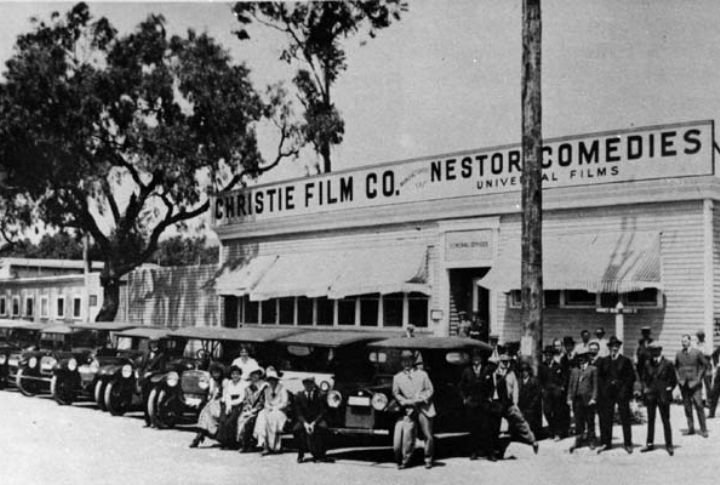
Hollywood became Hollywood with one bold move in 1911. The Nestor Film Company built the first permanent studio on Sunset Boulevard. While Edison filmed earlier on the East Coast, this West Coast studio marked the start of California’s reign as the capital of moviemaking.
Colorado Hosts The First Winter X Games

In 1997, Colorado welcomed athletes and fans to the inaugural Winter X Games in Snow Summit. The event spotlighted extreme winter sports like snowboarding and freestyle skiing, which brought attention to Colorado and also inspired a new generation of winter athletes.
Connecticut Drafts The First Colonial Constitution

The year was 1639. Leaders in colonial Connecticut drafted the Fundamental Orders, a framework resembling a constitution. It established self-government in a time of monarchies. Though centuries old, its influence lingered in state charters and the U.S. Constitution.
Delaware Is The First To Ratify The Constitution
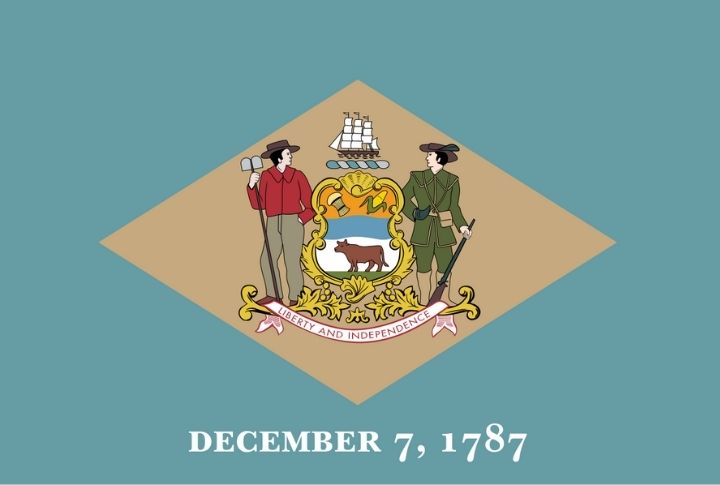
The vote was swift and unanimous. On December 7, 1787, Delaware became the first state to ratify the U.S. Constitution. That early commitment to unity earned it the enduring nickname “The First State.” Delaware acted decisively, moved first, and made history.
Florida Launches The First Passenger Airline Flight
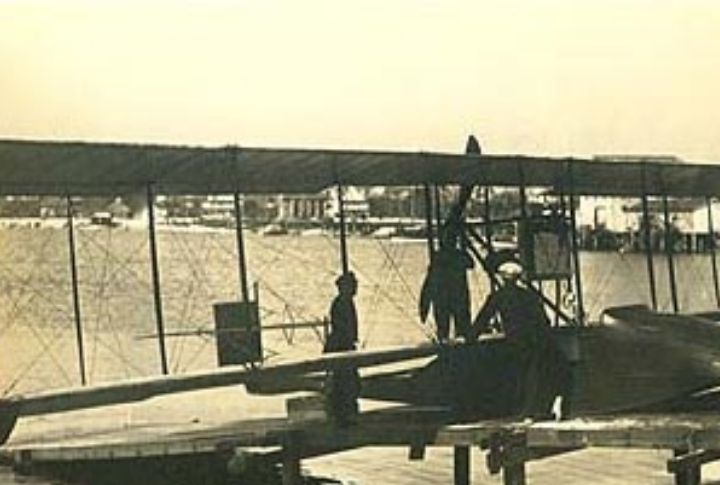
Air travel for the public began with a splash. The passenger paid $400 at auction to board. The journey lasted 23 minutes but made aviation history. On January 1, 1914, a flying boat lifted from St. Petersburg and crossed Tampa Bay to land in Tampa.
Georgia Hosts America’s First Gold Rush
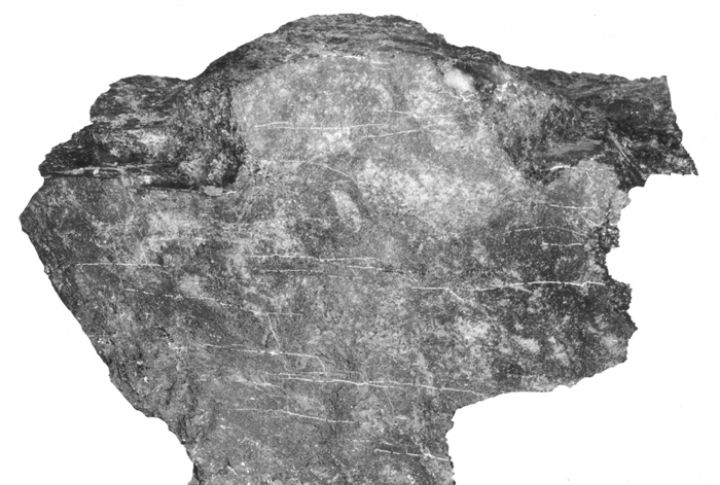
In 1829, miners poured into north Georgia, chasing rumors of gold. The strike in Dahlonega led to a federal mint and helped shape U.S. mining laws. Georgia’s hills glittered first. Long before the frenzy hit California, the nation’s gold fever had already begun in the Southeast.
Hawaii Bans Billboards Statewide

To protect its scenic beauty, Hawaii took a stand. In the 1920s, it became the first U.S. state to ban billboards entirely. The law preserved open views along highways and coastlines. Today, it remains a bold model for balancing commerce with natural aesthetics.
Idaho Powers A City With Nuclear Energy

A flicker in Arco lit up the future. In 1951, Idaho’s small desert town became the first city ever powered entirely by nuclear energy. Though the experiment lasted only an hour, it marked a turning point in proving fission had peaceful potential far beyond warfare.
Illinois Builds The First Skyscraper

Ten stories changed everything. Chicago’s Home Insurance Building, completed in 1885, used a steel frame instead of brick or stone. That innovation made it the world’s first skyscraper. Its design reshaped urban growth and launched a vertical race that cities still climb today.
Indiana Hosts The Pro Baseball Game
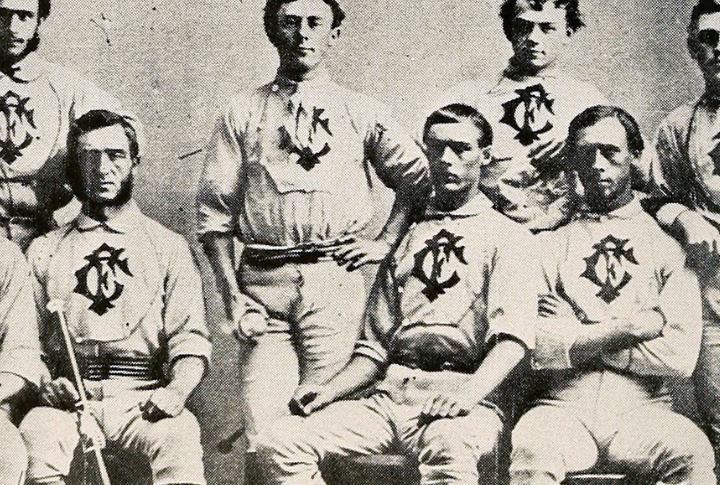
In 1871, the Fort Wayne Kekiongas hosted the Cleveland Forest City in what became the first game of the National Association. It wasn’t just a local match. Fort Wayne’s field became the setting for baseball’s leap from a neighborhood pastime to a thoroughly professional league.
Iowa Admits Women To University Equally

That shift happened in Iowa City. Women were admitted to the University of Iowa on the same terms as men—no restrictions, no separate tracks. In 1855, the school made a bold move toward equality. It reshaped academic access long before most states followed suit.
Kansas Elects A Woman Mayor First

Her unexpected victory made history. In 1887, Susanna Salter’s name appeared on the Argonia mayoral ballot as a prank. The townspeople elected her anyway. She became the first woman mayor in U.S. history by prompting a national rethinking of women’s place in politics.
Kentucky Opens A U.S. Winery

Did you know America’s wine journey didn’t begin in California? In 1799, Kentucky’s Jessamine County saw the launch of the First Vineyard. With official land backing and high hopes, it introduced commercial-scale viticulture to the frontier long before Napa ever made a name for itself.
Louisiana Hosts An American Opera

A French-language opera was played to an eager crowd in 1796. It was the first performance of its kind in the U.S., and it happened in New Orleans. The city’s rich mix of cultures and artistic ambition made it a natural birthplace for American opera.
Maine Bans Alcohol Before Prohibition
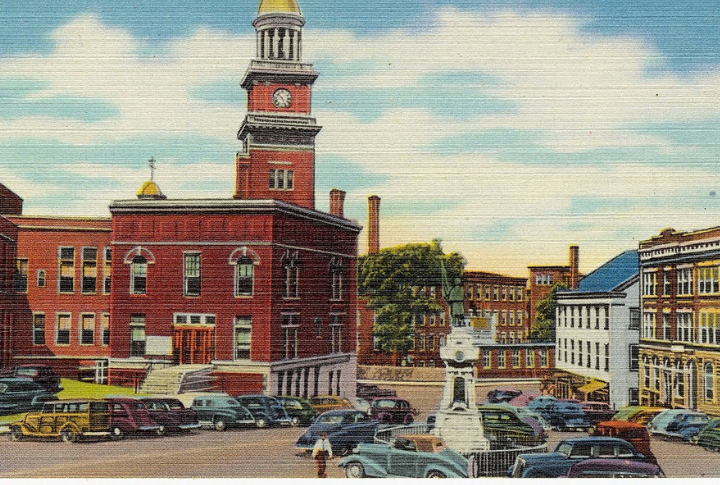
The temperance movement found an early ally in Maine. The state passed the “Maine Law,” becoming the first to enact a statewide alcohol ban (with exceptions). Though controversial, it foreshadowed national Prohibition decades later. That milestone came in 1851.
Maryland Creates The First Dental College

After formalizing training and improving standards, the Baltimore College of Dental Surgery set the stage for medical legitimacy in dentistry. In 1840, it became the world’s first dental school. Modern dentistry’s evolution traces back to that classroom in Maryland, where professional dental education truly began.
Massachusetts Opens America’s First Public School

Before there was a nation, there was a classroom. In 1635, colonial Boston, Massachusetts, opened Boston Latin School, America’s first public school. Its focus on classical education for boys set a model that other colonies, and eventually states, would follow.
Michigan Launches America’s Automotive Revolution
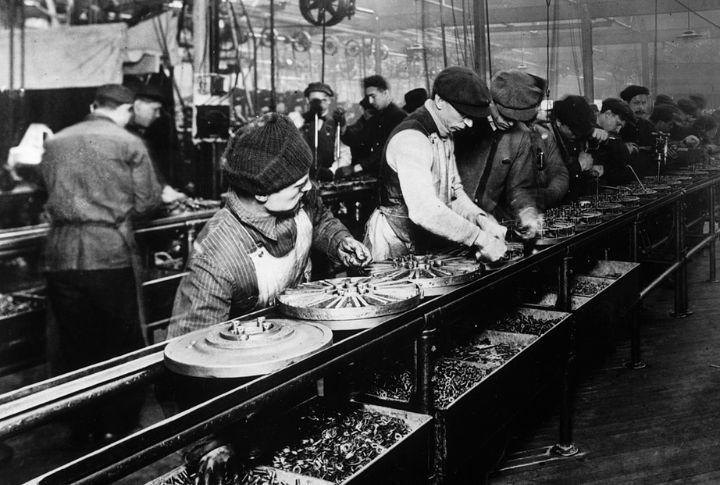
Henry Ford revolutionized transportation in Michigan with the moving assembly line in 1913. By drastically reducing car costs, he made automobiles accessible to average Americans. Detroit evolved into the global hub of innovation and earned the iconic nickname: the Motor City.
Minnesota Debuts The Enclosed Mall

When Southdale Center opened in Edina in 1956, it introduced a centralized shopping space. As the nation’s first enclosed, climate-controlled mall, it created a new kind of suburban gathering place and inspired retail developments across the country.
Mississippi Performs The First Lung Transplant

A lung patient’s brief survival in 1963 opened a medical frontier that molded thoracic care. In Jackson, doctors made history at the University of Mississippi Medical Center by performing the first human lung transplant. The procedure was unprecedented, and it changed medicine’s future course.
Missouri Hosts A Parachute Jump From A Plane

Albert Berry jumped from a Benoist aircraft over Jefferson Barracks in 1912. The parachute opened cleanly to mark aviation’s first successful airplane jump. It happened near St. Louis and signaled the start of a new chapter in aerial daring and military parachute development.
Montana Elects The First Woman To Congress

Her election came before most women could vote. In 1916, Jeannette Rankin earned a seat in the U.S. House of Representatives. This move marked Montana as the first state to send a woman to Congress. She used her position to champion suffrage and speak out against war.
Nebraska Creates A One-House Legislature

In 1937, Nebraska defied expectations and scrapped the usual two-house model. It created the nation’s only unicameral legislature, a streamlined system to cut costs and gridlock. While others held onto tradition, Nebraska’s approach proved durable and still shapes state politics today.
Nevada Legalizes Gambling Statewide

That 1931 law set the stage for an economic turn that few states have matched. Nevada legalized gambling to offset the crushing effects of the Great Depression. Las Vegas and Reno evolved into entertainment capitals that redefined what a post-crisis reinvention could look like.
New Hampshire Holds The First Presidential Primary

A quiet state took the national spotlight in 1920. New Hampshire introduced a presidential preference vote into its state primary by creating a political ritual that now sets the tone for every election cycle. Candidates learned early: win here or lose momentum.
New Jersey Pioneered The Hosting Of The College Football Game

The first intercollegiate football contest occurred in 1869 between Rutgers and Princeton on a New Brunswick field. While the game resembled soccer more than modern football, it marked the beginning of college sports as a spectacle and launched a long-standing tradition.
New Mexico Tests The First Atomic Bomb

In 1945, the Trinity Site near Alamogordo witnessed humanity’s first atomic bomb detonation. This powerful test marked the dawn of the nuclear age, dramatically altering global politics and scientific exploration to reshape New Mexico’s historical role.
New York Lights The First Electric Grid

Thomas Edison illuminated homes in lower Manhattan with the Pearl Street Station in 1882, the first electric power grid in the world. This groundbreaking system paved the way for modern electrical infrastructure and forever changed how people lived and worked.
North Carolina Takes Flight First

On December 17, 1903, the Wright brothers launched the age of aviation with a short flight at Kitty Hawk. Though airborne for only seconds, their Flyer proved that controlled flight was possible. That tiny leap unlocked a revolution in global travel and transportation.
North Dakota Establishes The First State-Owned Bank

North Dakota launched a unique solution to protect local farmers and shield residents from outside financial forces. In 1919, it created the Bank of North Dakota, the country’s only state-owned bank. More than a century later, it still plays a key role in economic stability.
Ohio Installs The First Traffic Light

In 1914, Cleveland tackled growing street congestion with the nation’s first electric traffic signal. Using red and green lights, it directed vehicles more safely through intersections. The success of this system spread globally and became essential to modern traffic management.
Oklahoma Introduced The First Parking Meter

Nicknamed “Park-O-Meters,” these small machines revolutionized city streets. Oklahoma City installed the first ones in 1935 to manage downtown congestion. The devices improved traffic flow and boosted municipal revenue, which created a standard parking model for American cities.
Oregon Launches America’s First One-Way Streets

The one-way street model quickly caught on and inspired other cities to adopt similar traffic control strategies. In 1948, Eugene, Oregon, converted a 40-square-block business district to a one-way system to ease traffic congestion. It became the first U.S. city to implement this model.
Pennsylvania Strikes Oil First

Oil became a driving force of modern industry thanks to a small well near Titusville. In 1859, Edwin Drake drilled the nation’s first successful commercial oil well in Pennsylvania. That discovery fueled a global petroleum boom and reshaped how the world powered growth.
Rhode Island Builds America’s First Baptist Church

Thanks to his bold vision in 1638, Roger Williams pioneered building the first Baptist church in Providence, Rhode Island. His group’s embrace of religious freedom and church-state separation laid the foundation for essential values later enshrined in the country’s founding ideals.
South Carolina Secedes From The Union

What happens when a state walks away from the Union? In December 1860, South Carolina did that by citing slavery and states’ rights. This bold act stirred widespread political unrest and sparked the flame that led to the Civil War, to finally redraw the path of U.S. history.
South Dakota Pioneers Propane-Powered Balloon Flight

In the late 1950s, near Sioux Falls, South Dakota, engineers launched a propane-heated hot air balloon that replaced hydrogen for the first time. The pioneering flight lasted 25 minutes and traveled three miles to mark a turning point in lighter-than-air aviation technology.
Tennessee Records The Birth Of Country Music

The Bristol Sessions in Tennessee marked a seismic moment in music history, later called the “Big Bang” of country music. In 1927, Ralph Peer recorded emerging legends like Jimmie Rodgers and the Carter Family. Congress named Bristol the birthplace of country music in 1998.
Texas Opens The Domed Stadium

The opening of the Astrodome in Houston in 1965 marked the debut of the world’s first fully air-conditioned, domed stadium. The innovative design of the “Eighth Wonder of the World” revolutionized stadium construction and sports and entertainment venues around the world.
Utah Launches A Department Store

Utah’s ZCMI introduced a new retail model in Salt Lake City by gathering diverse goods under one roof. The 1868 debut of America’s first true department store set a precedent that other chains would soon follow. This innovation took modern retail shopping a significant step forward.
Vermont Abolishes Slavery By Constitution

Vermont demonstrated its commitment to human rights in 1777 by adopting a constitution that banned adult slavery and indentured servitude for males over 21 and females over 18. Although imperfectly enforced, this legal statement predated national abolition by nearly a century.
Virginia Establishes The First Permanent English Settlement

Jamestown, founded in 1607 along Virginia’s James River, was North America’s first successful English settlement. Despite hardships, its survival laid the foundations for further English colonization, eventually preparing the cultural and political scene of the United States.
Washington Opens Starbucks

Did you know that the popular Starbucks you visit on your way to work started in 1971 as a humble coffee bean shop? Located in Seattle’s Pike Place Market, that original store set the stage for a global brand redefining coffee culture later.
West Virginia Forms From Confederate Secession

West Virginia uniquely became a state during the Civil War in 1863 by breaking away from Confederate Virginia. It was the only state created through secession from a Confederate state by underscoring deep regional divides and changing America’s map amid wartime.
Wisconsin Invents The Practical Typewriter

Christopher Sholes introduced the first commercially successful typewriter in Milwaukee in 1868 and developed the QWERTY keyboard layout. The design became the global standard. His invention improved communication and the spreading of knowledge.
Wyoming Opens Yellowstone National Park
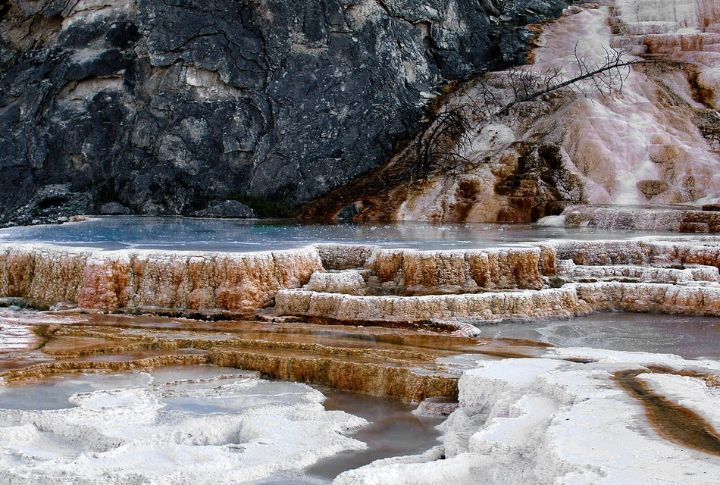
Yellowstone became the world’s first national park in 1872 by laying the groundwork for global conservation efforts. Though it spans Montana and Idaho, most of the park lies in Wyoming. Its protected geysers and wilderness marked a revolutionary step in public land preservation.

